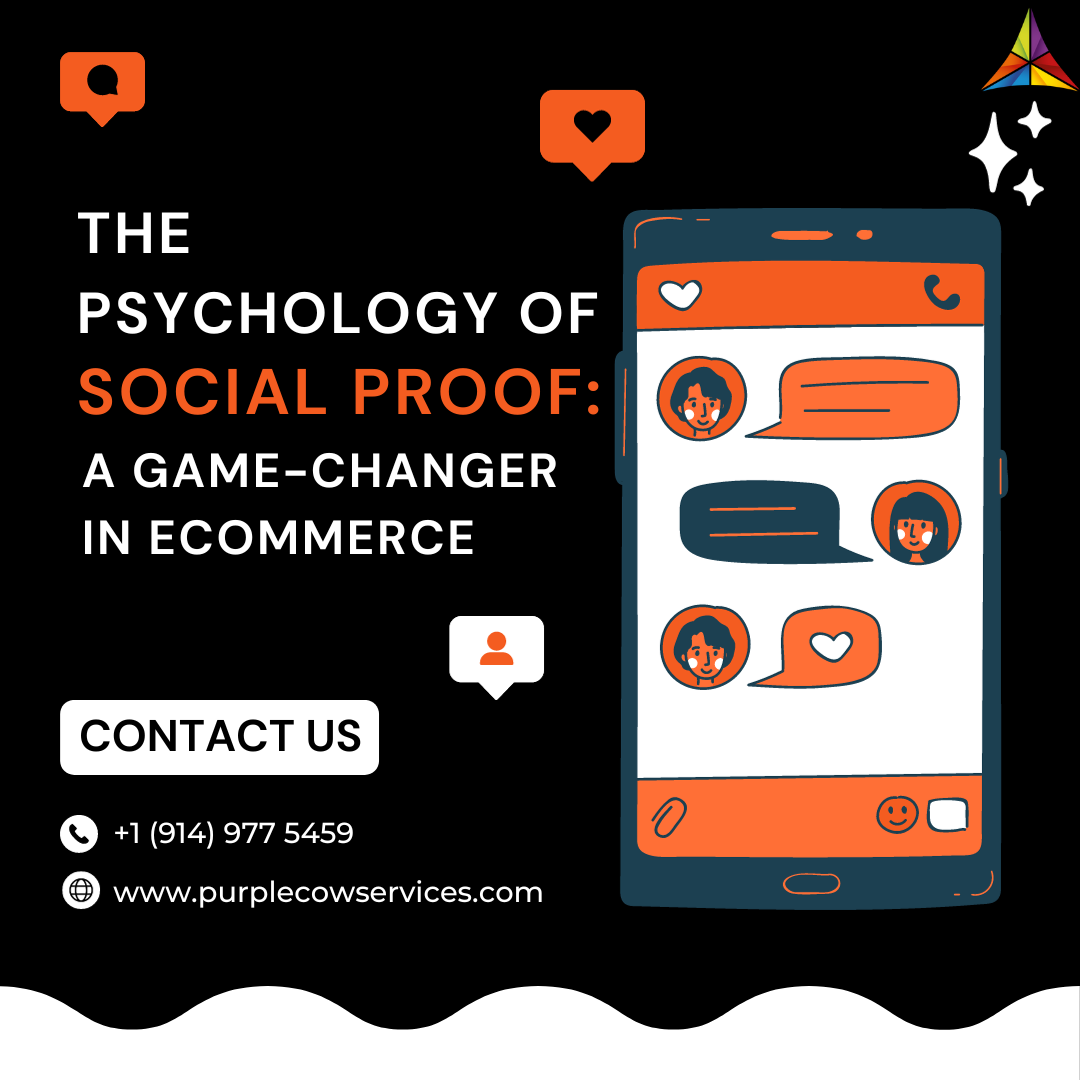Welcome to the world of eCommerce, where competition is fierce, and trust is invaluable. In this crowded digital marketplace, one concept stands out as a game-changer: Social Proof. It’s not just a buzzword; it’s a psychological phenomenon that can significantly impact consumer behavior. In this blog post, we’ll dive deep into the psychology of social proof in eCommerce, exploring how it influences decisions, builds trust, and ultimately boosts sales.
The Power of Social Validation
Humans are social creatures. We seek validation and reassurance from others, especially when making decisions. This innate need for social validation is at the heart of social proof. When potential customers see that others have had positive experiences with your products or services, it validates their choices and reduces the perceived risk.
Consider the simple act of displaying the number of product reviews on your eCommerce site. When a shopper sees that a particular item has garnered numerous positive reviews, it triggers a sense of confidence. They think, “If so many others have found this product satisfactory, it’s likely to meet my needs as well.” This reassurance can be a powerful motivator to click the “Add to Cart” button.
The Influence of Peer Recommendations
Peer recommendations have always held weight in decision-making. In the digital age, this influence has extended to online reviews, star ratings, and user-generated content. When consumers read positive comments or testimonials from people similar to them, it creates a sense of relatability and trust.
Imagine you’re in the market for a new smartphone. You come across a review from someone with a similar tech-savvy background, praising the phone’s features and performance. Their recommendation carries more weight because you can relate to their perspective. This phenomenon, known as the “similarity principle,” underscores the importance of showcasing reviews and endorsements from customers who mirror your target audience.
The Fear of Missing Out (FOMO)
Fear of Missing Out, or FOMO, is a psychological trigger that eCommerce businesses have harnessed effectively. When customers perceive that a product is in high demand or that a limited-time offer is about to expire, they experience a sense of urgency. FOMO leverages the fear that if they don’t act quickly, they’ll miss out on something valuable.
This urgency can be seen in strategies like countdown timers for flash sales or notifications about low stock levels. By tapping into the FOMO phenomenon, eCommerce retailers can nudge customers to take immediate action, such as making a purchase, subscribing, or signing up for a newsletter. The psychological pull of FOMO is a potent tool in the eCommerce arsenal.
The Authority Effect
In the realm of social proof, authority figures hold sway. When someone with expertise, credibility, or celebrity status endorses a product or brand, it sends a powerful signal to consumers. This is often seen in influencer marketing, where influencers with a strong following and domain knowledge recommend products to their followers.
Imagine a renowned fitness expert endorsing a line of sports equipment on their social media platform. Their endorsement not only reaches a vast audience but also carries a sense of authority and expertise. Consumers are more likely to trust the product based on the influencer’s recommendation, leading to increased sales and brand credibility.
Bandwagon Effect
The bandwagon effect is a fascinating psychological phenomenon that capitalizes on our tendency to follow the crowd. It’s the notion that when people see others adopting a particular behavior or choice, they are more likely to do the same. In eCommerce, this can manifest in various ways.
For instance, displaying “Best Sellers” or “Trending Products” sections on your website taps into the bandwagon effect. Shoppers are drawn to what’s popular because they believe it’s a safe choice. When they see that many others have made similar purchases, it reinforces the idea that they should do the same. This phenomenon not only boosts sales but also encourages customers to explore more of your offerings.
Testimonials and Case Studies
Testimonials and case studies are potent forms of social proof because they provide concrete evidence of your product’s value. These narratives go beyond star ratings and reviews; they tell a story of how real people have benefited from your offerings.
Consider a testimonial that shares how a customer transformed their business with your software or how a product solved a specific problem. These narratives resonate with potential customers who can envision themselves experiencing similar success. When presented effectively, testimonials and case studies can be persuasive tools that drive conversions and trust in your brand.
Building Trust Through Numbers
Quantitative social proof is all about showcasing numbers that indicate popularity, usage, or satisfaction. This can include the number of customers served, products sold, or positive ratings received. The mere sight of these numbers can instill trust in potential customers.
For example, displaying a counter on your website that shows the number of products sold in real-time can create a sense of urgency and trust. When shoppers see that hundreds or thousands of others have made purchases, it signals that your products are in demand and trustworthy. This numeric reinforcement can be a compelling force in the eCommerce landscape.
Transparency and Authenticity
While social proof is a potent tool, it’s essential to maintain transparency and authenticity in your approach. Faking reviews or endorsements can backfire and erode trust when customers discover the deception. To harness the power of social proof ethically, encourage genuine reviews, engage with customers, and respond to feedback, both positive and negative.
Transparency also extends to showcasing a mix of reviews, including some with constructive criticism. This demonstrates authenticity and the willingness to improve, further enhancing your brand’s credibility.
Leveraging User-Generated Content (UGC)
User-generated content, such as customer photos, videos, and testimonials, offers a goldmine of social proof. When customers see real people using your products or sharing positive experiences, it creates a sense of authenticity and relatability.
Encourage customers to share their experiences on social media with your products, and then curate and feature this UGC on your website. This not only provides social proof but also fosters a sense of community among your customers, strengthening their connection to your brand.
The Future of Social Proof in eCommerce
As eCommerce continues to evolve, so does the landscape of social proof. New platforms, technologies, and strategies emerge, presenting opportunities for businesses to connect with customers in innovative ways. Harnessing the psychology of social proof will remain a cornerstone of eCommerce success, enabling businesses to build trust, inspire action, and thrive in an ever-competitive digital world.
Conclusion
The psychology of social proof in eCommerce is a multifaceted phenomenon that encompasses a range of psychological triggers and strategies. By understanding the inherent human need for validation, relatability, and trust, eCommerce businesses can leverage social proof to influence consumer behavior positively. From peer recommendations and FOMO to authority endorsements and numeric reinforcement, social proof is a game-changer that can boost conversions, build brand loyalty, and drive eCommerce success. To stay ahead in the eCommerce game, embrace the psychology of social proof and let it be a guiding force in your digital strategy.
Unlock eCommerce success with Purple Cow’s Social Proof Mastery. Our expertise in understanding the psychology of social proof can supercharge your brand’s trust, conversions, and sales. From authentic testimonials to influencer endorsements, we’ve got the strategy to make your eCommerce business stand out. Choose Purple Cow for a proven path to eCommerce excellence.














